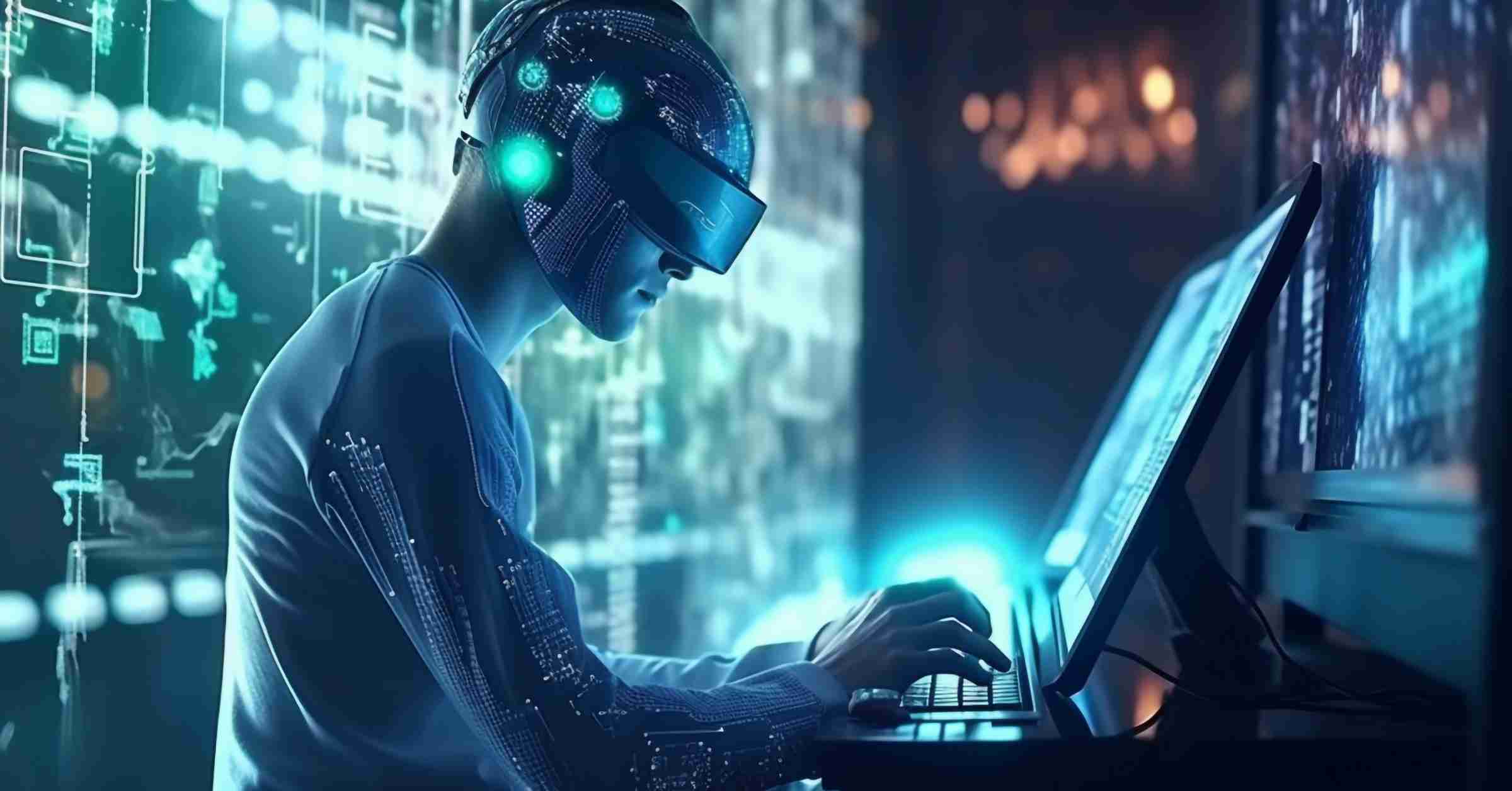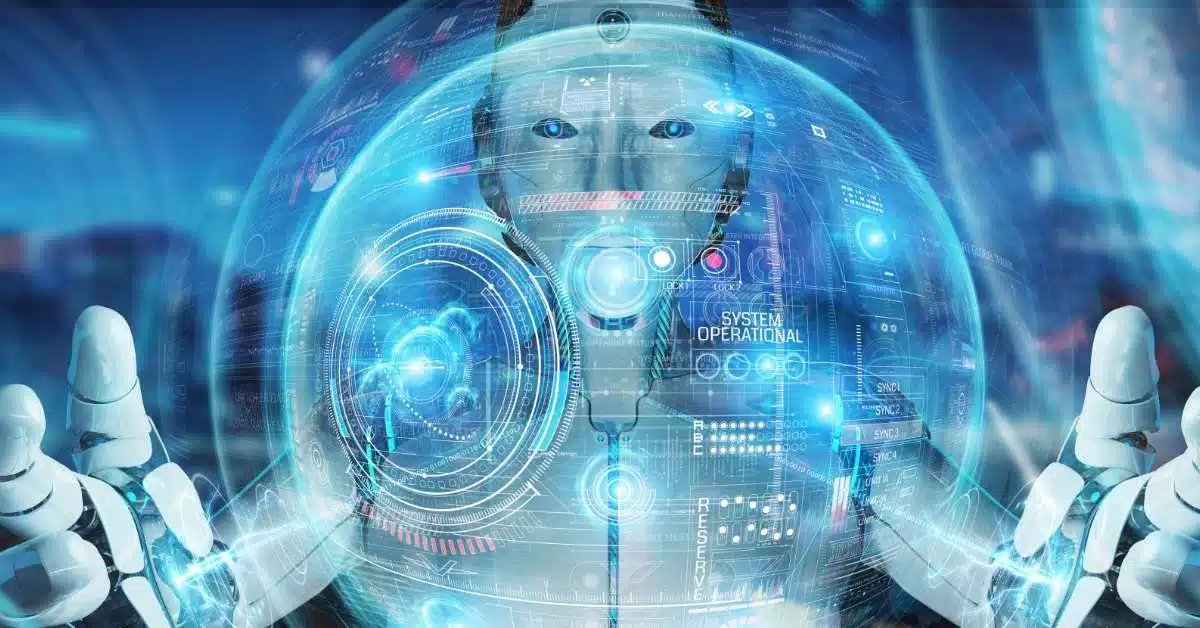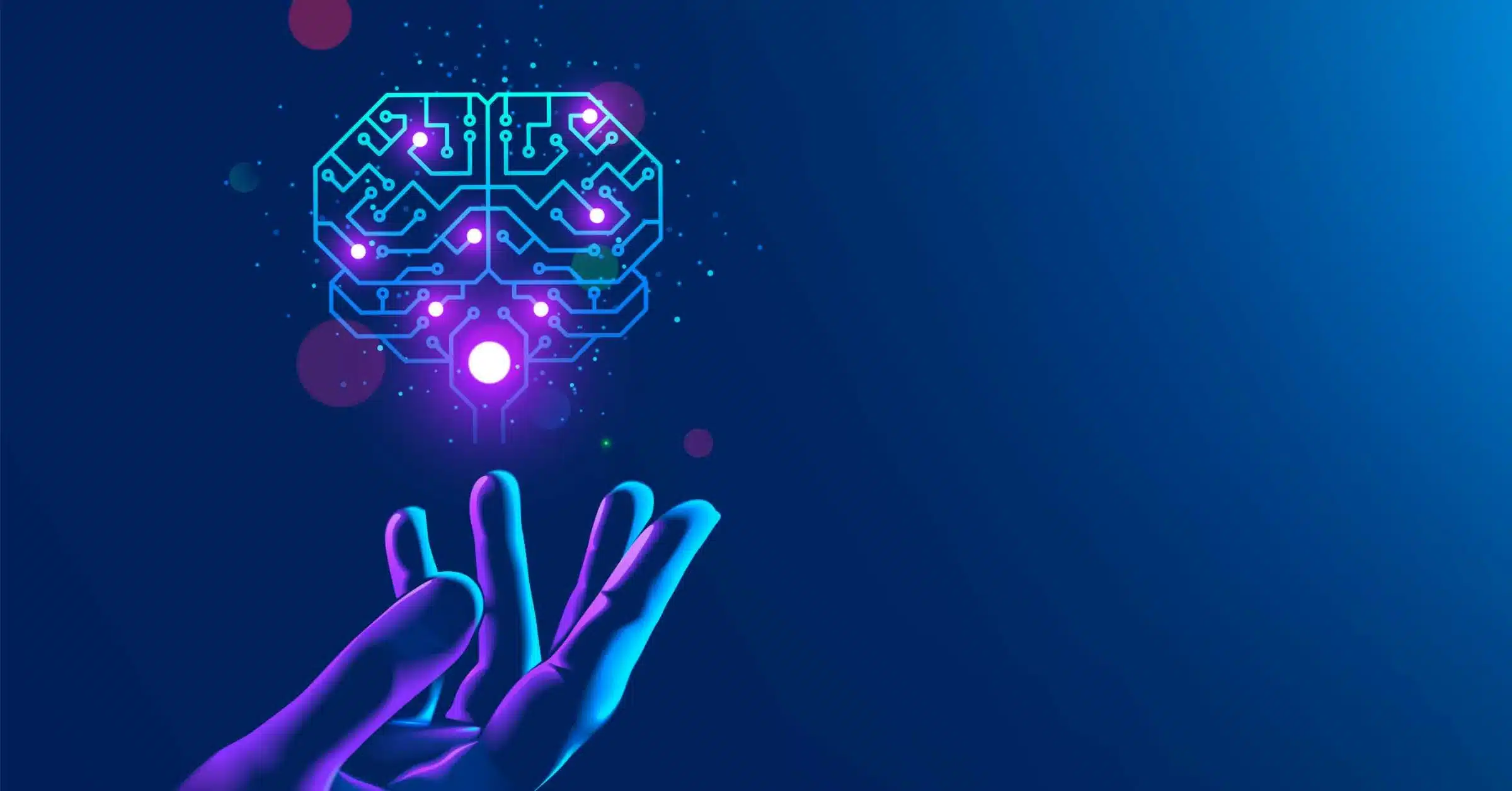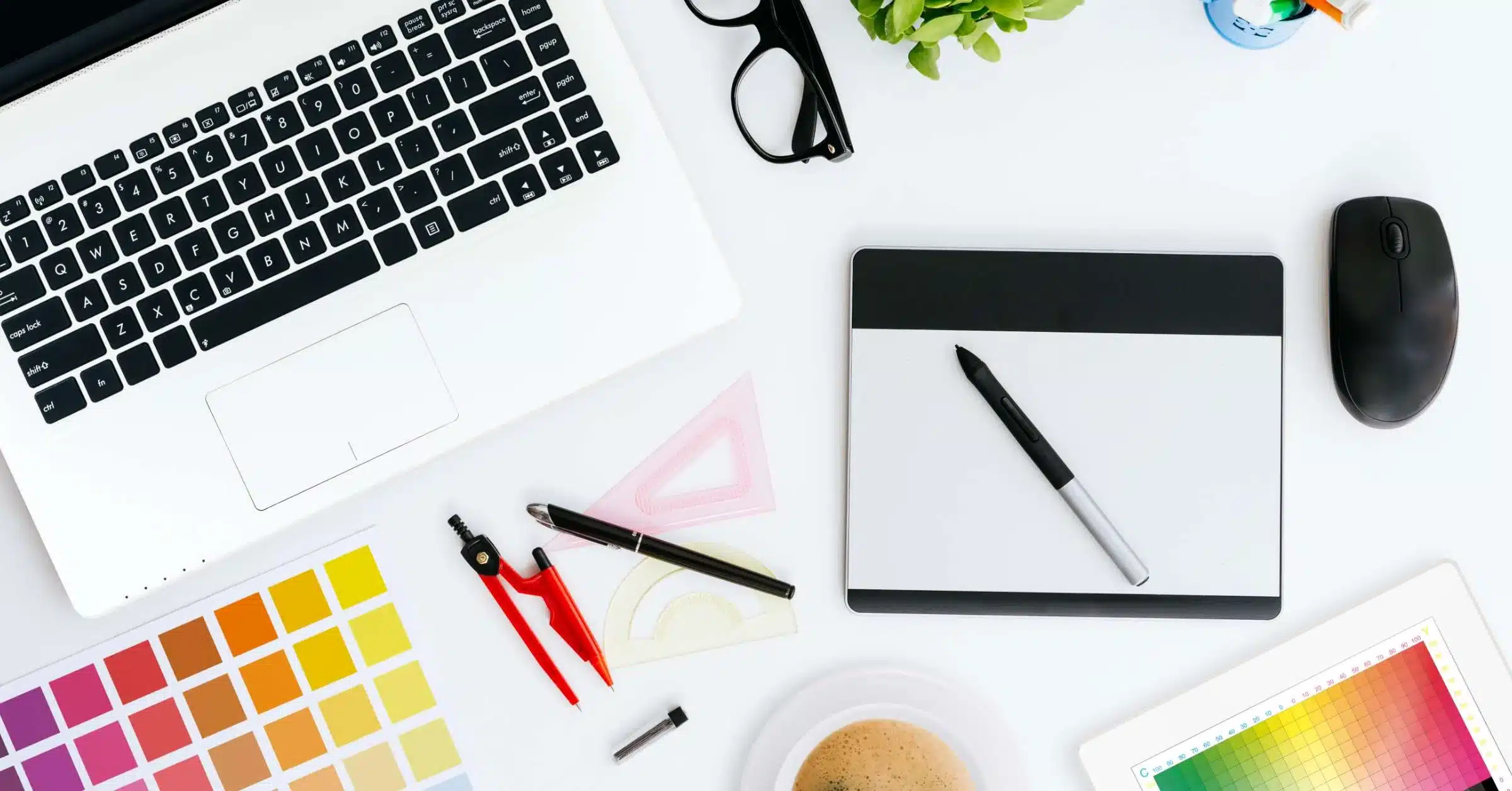
Table of Contents
- Introduction
- AI’s Potential Benefits
- Why the Human Touch is Essential
- How to Use AI Responsibly in Website Creation
- Okay, I Can Do It, But Should I?
Should you use an AI to make your next website instead of hiring a web designer? It’s a good question for any marketing pro to ask. The promise of AI is that it will do the things we don’t want to do ourselves, either because we don’t know how, or because we don’t want to spend the time.
You can’t paint like Vermeer, but if you could, would you ever recreate The Girl With a Pearl Earring with a pug instead of a person?
Of course not, but ChatGPT can make it in 10 seconds.

Making a website is a much bigger project than an image, obviously, but it’s perfectly reasonable to think that an AI tool exists that can make a website.
We will tell you how you can use AI to make your website, but we’ll also answer a larger question…
Should you?
AI’s Potential Benefits
Platforms like Wix have tools that claim to generate entire websites for you with minimal input. These tools can provide a starting point, especially if you have limited web development experience, but it’s important to remember the limitations (and there are many).
First, let’s talk about the benefits.
Speed and Efficiency
Building a website can be a tedious process. From wrangling with lines of code to meticulously aligning images, some tasks eat up time and energy.
AI can be a lifesaver in this regard.
Tools exist that automatically generate basic layouts and that could save hours spent on wireframing. Images are always hard to source if you don’t have a professional photographer on retainer, and AI-powered image libraries can tap into collections, finding photos and illustrations that feel fresh and relevant.
These automated functions save you from the more mundane aspects of web design. This frees up your time and mental bandwidth to focus on the big picture like honing your messaging, defining your brand voice, and making those strategic decisions that set your website apart.
Content Generation
We’ve all stared at a blank page, the blinking cursor mocking us as writer’s block sets in. AI isn’t a replacement for skilled copywriters, but it can be a helpful thought-starter.
Tools like Copy.ai or Unbounce Smart Copy generate rough drafts, offer alternative phrasings, and they can help with translations for multilingual sites.
Think of these AI helpers as tireless brainstorming partners. They may churn out some nonsensical phrases, but they also might throw out gems that inspire your own unique approach. It’s a way to supercharge the ideation process without sacrificing your brand’s authentic tone.
Data-Driven Insights
Your website isn’t a fixed object, a living document. AI thrives in data analysis, uncovering patterns and behaviors that a human eye might overlook. By tracking how visitors click on your site, where they linger, and where they drop off, AI can identify potential chokepoints or missed conversion opportunities.
AI acts as a tireless analyst, constantly poring over data. Its recommendations can lead to subtle website tweaks that dramatically improve user experience. Think better button placement, more intuitive navigation, or compelling calls to action – optimizations that translate directly into results.
Why the Human Touch is Essential
Creativity and Nuance
AI can mimic, but it struggles with true originality. It analyzes existing patterns and learns from them, but your business is unique.
Can AI truly grasp the nuances of your brand voice or the subtleties of your industry? Your website needs to stand out, not blend in, and that requires a human understanding of messaging and differentiation. An AI might write passable copy, but it won’t capture that spark that makes your brand memorable.
Your website is the digital face of your business. Would you trust an AI to choose a spokesperson for your brand, or write an inspiring mission statement that resonates with your customers?
Of course not.
Genuine human connection relies on subtle communication cues and empathy – things that AI still doesn’t really do.
Ethical Considerations
Unchecked AI has the potential to cause real-world harm.
Because every AI needs to be trained on existing material, the biases and prejudices (even good ones!) can sneak into its output. AI tools trained on massive datasets can end up regurgitating existing material without proper attribution, essentially leading to plagiarism.
You need to keep a human in the loop to make sure your website content is original, ethical, and reflects your company’s values.
Companies have been rightfully criticized for content that promotes stereotypes or spreads misinformation. While some of this can be malicious, AI tools, without careful guidance, can amplify those issues unwittingly. A human editor needs to identify potential pitfalls and ensure that the output aligns with ethical standards and brand messaging.
Also, we would be remiss if we didn’t mention the ethical implications of recreating an artist’s unique style without giving them credit.
There has been significant blowback from creatives when brands use unexamined AI images instead of the work of a graphic designer or artist. You can avoid that by, again, keeping a human in the loop.
Strategic Alignment
AI doesn’t understand your target audience, business goals, or your overall marketing strategy. It can offer suggestions and analyze data, but it can’t make those high-level decisions about how your website should function, what it should prioritize, and how it should integrate into your larger marketing efforts.
This kind of strategic vision is uniquely human.
Your website exists within the larger context of your marketing efforts and overall business strategy. AI can spot bottlenecks and suggest improvements based on data, but it won’t understand the nuances of customer journeys, the competitive landscape, or long-term branding goals.
Humans must interpret the data and align the website’s design and functionality with those objectives.
How to Use AI Responsibly in Website Creation
AI as an Assistant, Not a Replacement
Think of AI tools as powerful helpers, not as a substitute for a web team. Use them to speed up repetitive tasks like generating code snippets or finding suitable images. Leverage their data-crunching abilities to pinpoint areas where user experience could be improved.
AI is a means to enhance productivity, not to outsource your core responsibilities.
It’s important to set the right expectations. AI can automate certain tasks, but it can’t replace the critical thinking, creative problem-solving, and strategic expertise that a human web developer brings. See AI as a tool that can augment your team’s abilities, not eliminate the need for human input.
Transparent Editing and Fact-Checking
Never take AI-generated output at face value. Rigorously edit any text for accuracy, tone, and originality. Fact-check against reliable sources, especially if AI is providing information or statistics.
Be mindful of possible bias in the output, and be prepared to make significant revisions to ensure your content aligns with your brand and values.
Remember, AI models are trained on massive datasets, and those datasets can inadvertently contain misinformation or reflect social biases.
It’s your responsibility to ensure that the final content on your website is factually correct, free from any harmful stereotypes, and aligns with your company’s values.
Staying Up-to-Date
AI is a relatively new industry and it’s changing really fast.
You’ll need to continuously learn about the ethical considerations surrounding AI tools and the best practices for using them responsibly. Read industry blogs, follow relevant thought leaders, and stay informed about the latest tools and their capabilities.
As the technology advances, so should your approach to using it wisely.
Staying informed is extremely important because ethical standards and legal regulations around AI usage are still being established. By proactively learning about these developments, you can keep your web development practices ahead of the curve.
Okay, I Can Do It, But Should I?
This is a question only you can answer. You know your business, your capabilities, your resources, your needs. A blog isn’t going to be able to tell you whether an AI can make your website, or be able to know whether or not you should use an AI. Every situation and every business is different.
But to answer the question, you probably should not use an AI to design your website. It’s too fraught with danger to recommend anybody use an AI website generator.
As we’ve demonstrated, you can use the tools out there to help you or your web team make a website. Every web designer is going to use some form of automation to help them make a website, even if they’re designing it themselves and creating it from the ground up.
We already use AI in tons of different applications but we don’t think of them as traditional AI.
The autocorrect that fixes your text messages?
The spell check and grammar check that Word does on the documents you make?
The SEO tools that give you insight into keywords?
These are all using some form of artificial intelligence.
So while you shouldn’t use AI to create a website, you can definitely use it to help you make a website, if you don’t really know how. An even better solution is to get your pals at DOM to help you make a website.
We have designers, developers, SEO experts and writers who can make your vision of a website a reality. Contact us to schedule a consultation.
Key Takeaways
- AI can assist in the website creation process, but not fully replace human expertise. AI excels at automating tasks, generating initial content, and analyzing website data. However, originality, strategic understanding, and ethical oversight remain vital human contributions.
- Websites must be unique and ethical. AI can sometimes replicate existing styles or perpetuate biases. Your website needs to stand out for its authentic messaging while ensuring content is original, bias-free, and aligned with your values.
- AI offers both speed and insight. Leverage AI to accelerate mundane design tasks or gain data-driven insights into user behavior. This frees up time for focusing on the big picture and strategy that differentiates your brand.
- Always maintain human oversight. Rigorously edit, fact-check, and refine any AI-generated output. Humans are responsible for ensuring the final website is accurate, aligns with branding, and reflects ethical principles.
- Stay informed about AI developments. As AI technology and regulations surrounding it evolve, continuous learning and proactive adaptation are essential for responsible use.
- The right approach depends on your unique circumstances. While it’s not recommended to solely rely on AI for website creation, thoughtful integration of AI tools can offer valuable assistance within your larger website development strategy.


